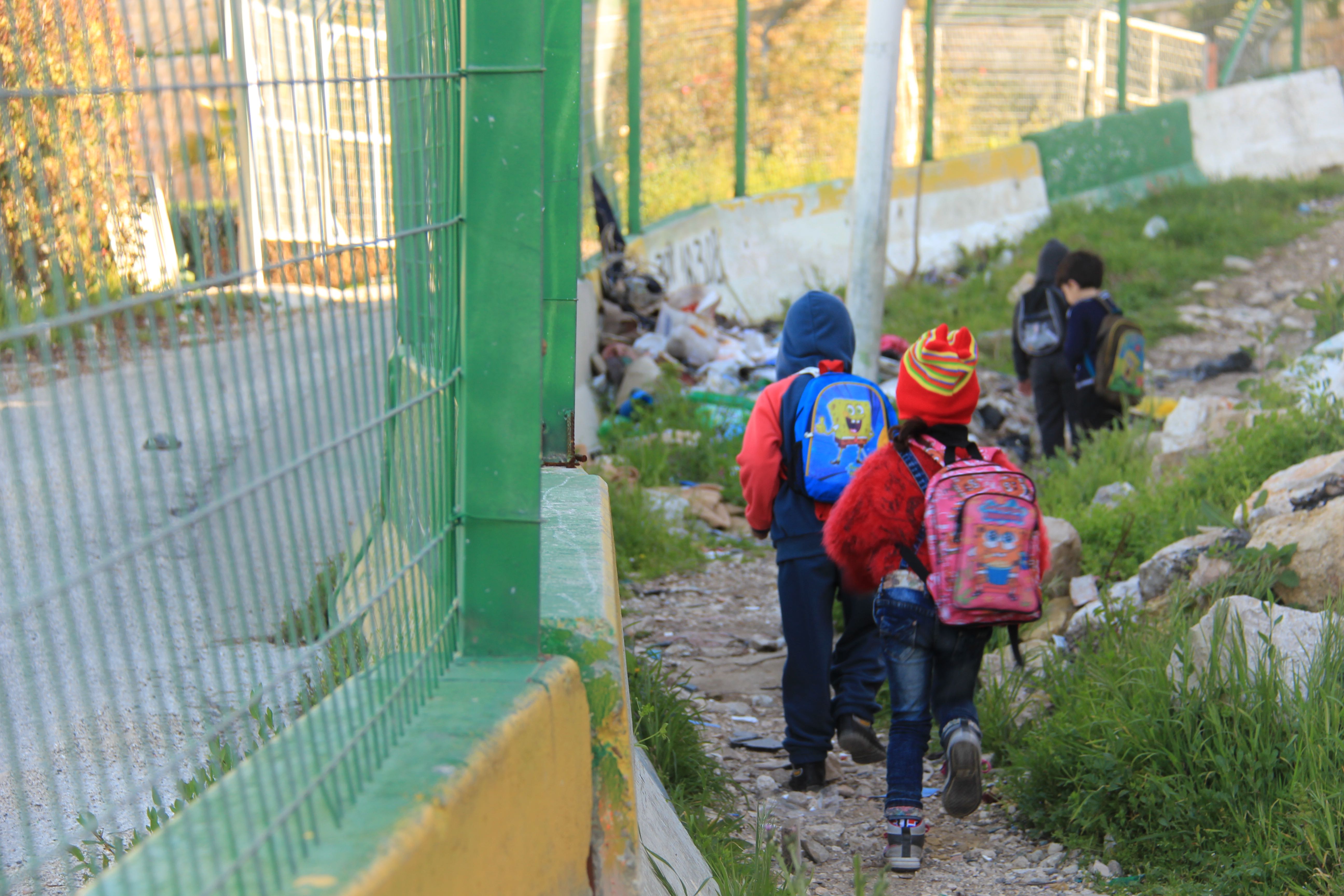Tag: Denial of Entry
-
‘It is my job to scare Palestinian children’ – Israeli forces justify intimidation of kindergarten children
6th March 2016 | International Solidarity Movement, al-Khalil team | Hebron, occupied Palestine Kindergarten-children in occupied al-Khalil (Hebron) often face harassment and intimidation by Israeli forces on their way to kindergarten. Listen to this audio recording of a discussion between an international volunteer and the soldiers about why the soldiers ‘have to’ scare the kindergarten-children…
-
Children living in closed military zone enjoy day of fun under the shadow of the occupation
13th February 2016 | International Solidarity Movement, al-Khalil team | Hebron, occupied Palestine On February 13th 2016 Youth Against Settlements in occupied al-Khalil (Hebron) organised a children’s activity in front of Shuhada Street checkpoint. Around 50 children from the neighbourhoods located on the H2 (entirely Israeli military-controlled) side of the checkpoint – Tel Rumeida and…
-
Intimidating military patrol of Palestinian market
9th February 2016 | International Solidarity Movement, al-Khalil team | Hebron, occupied Palestine Tuesday, 9th February 2016, Israeli forces patrolled the Palestinian market in occupied al-Khalil (Hebron), harassing and intimidating residents. A group of soldiers marched through the souq, the main Palestinian market since the closure of Shuhada Street for Palestinians after the Ibrahimi mosque…



